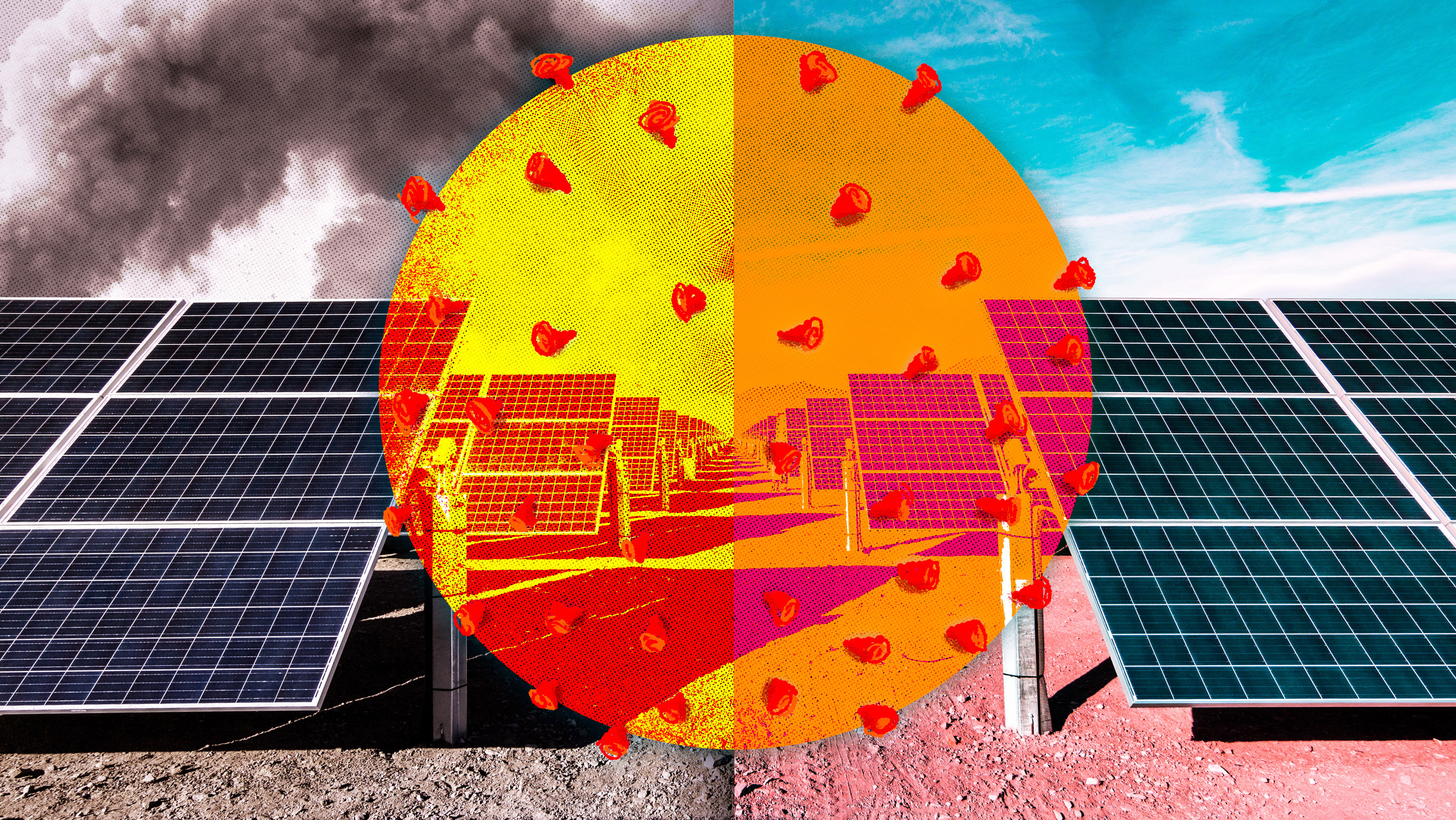Covid-19’s sunny side

As covid-19 brought travel and commerce to a standstill, air pollution cleared significantly enough to boost the performance of solar panels. In Delhi, one of the world’s smoggiest cities, output from solar installations increased more than 8%, according to a study by MIT mechanical engineer Tonio Buonassisi, former MIT research scientist Ian Marius Peters, and colleagues.
The study was an extension of research the team has been conducting in Delhi for several years. Using pollution data collected at the US embassy and meteorological data collected by monitors at the solar installations, they had concluded that pollution generally reduced output by about 10%.
To assess the pandemic’s impact, they compared the data from before and after India went into mandatory lockdown on March 24, and also compared this with data from the previous three years. Pollution was down by about 50% after the shutdown, they found, and total solar output increased by 8.3% in late March and 5.9% in April—three to four times the typical fluctuations.
An 8% increase might not sound like much, Buonassisi says, but “the margins of profit are very small for these businesses.” The findings demonstrate, he says, that the very act of using more solar electricity to displace dirtier fossil fuels makes the solar systems more efficient: putting solar panels on one’s house is “not only putting money in your pocket, but it’s also helping everybody else out there who already has solar panels installed, as well as everyone else who will install them over the next 20 years.”
Keep Reading
Most Popular
Large language models can do jaw-dropping things. But nobody knows exactly why.
And that's a problem. Figuring it out is one of the biggest scientific puzzles of our time and a crucial step towards controlling more powerful future models.
How scientists traced a mysterious covid case back to six toilets
When wastewater surveillance turns into a hunt for a single infected individual, the ethics get tricky.
The problem with plug-in hybrids? Their drivers.
Plug-in hybrids are often sold as a transition to EVs, but new data from Europe shows we’re still underestimating the emissions they produce.
Google DeepMind’s new generative model makes Super Mario–like games from scratch
Genie learns how to control games by watching hours and hours of video. It could help train next-gen robots too.
Stay connected
Get the latest updates from
MIT Technology Review
Discover special offers, top stories, upcoming events, and more.